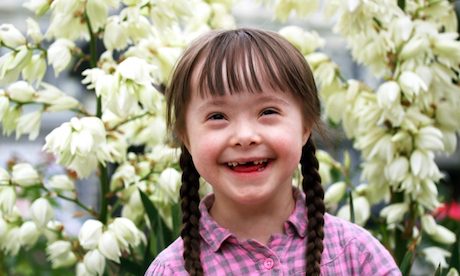The day after Samantha was born, her mother Margaret was told she had Down’s syndrome. “After the doctors left my bed I held my baby tight and prayed to Our Lady and said I would always take care of her.
“They were very negative in the hospital, telling us she probably wouldn’t live past 21 and all these other health problems. I wanted to get out of the hospital so I could take her to church.”
Samantha, who was born on the feast of Our Lady’s Nativity, is now 30. Although verbal communication is limited, she has many books about Jesus, and her own rosary beads which she loves, and spends time in prayer with her parents. Prayer has been a vital support for the family.
“Samantha didn’t really understand about Jimmy but she did know he went out and never came home, so for a long time if she was going anywhere she would say ‘come back’ and if I was going anywhere she would say ‘mummy come back.’ She won’t mention his name, now.
Margaret is talking about her son, Jimmy Mizen, the 16 year old who was murdered outside a bakery in south east London the day after his birthday.
“I have always had a strong but simple faith and having Samantha seemed to seal my bond with God even more. Sometimes we let go of God at the one time we need him. That never happened to me: I just clung a bit tighter.”
Today is World Down’s Syndrome Day, a UN initiative launched in 2012 to recognise “the inherent dignity, worth and valuable contributions of persons with intellectual disabilities.”
This is an awkward subject for British society. Our many equality laws and inclusion policies are coupled with ever-advancing techniques to screen out and kill people with Down’s syndrome before they are born. Continue reading
Sources
- Catholic Herald, article by Dennis Sewell, a contributing editor of The Spectator.
- Image: ThingLink
- See also: My Feral Heart: finally, a positive portrayal of Down syndrome in MercatorNet
